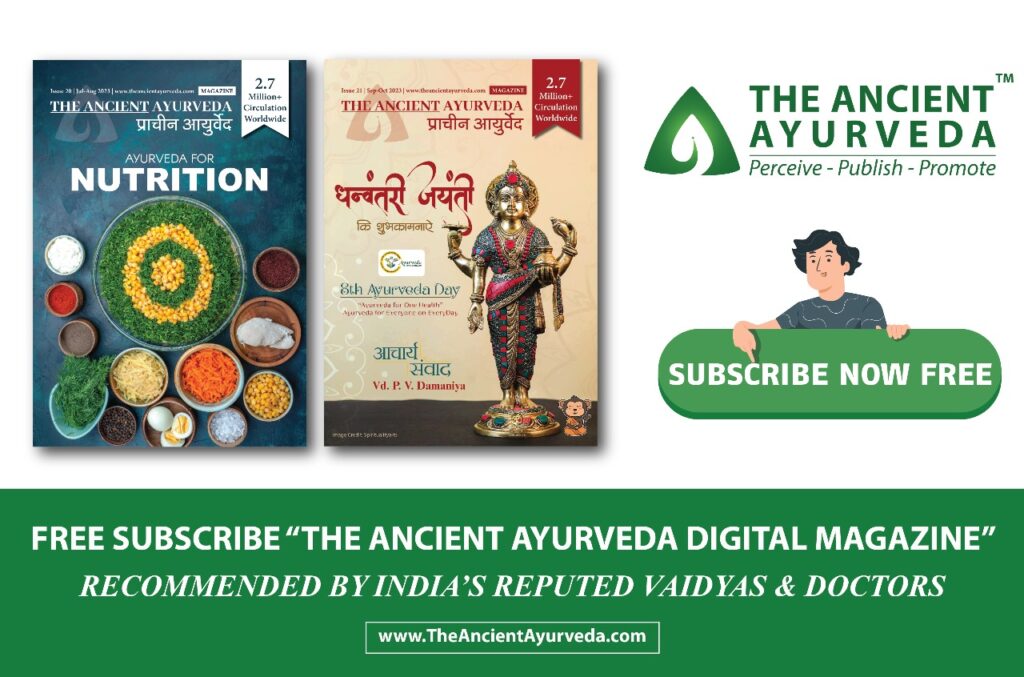In a world rich with diverse languages and communication, the inability to hear poses unique challenges. Deafness is termed as Badhirya in Ayurvedic science, which impacts millions worldwide. It transcends mere auditory impairment, profoundly shaping an individual’s experiences and interactions with the world around them. It is a very uncomfortable ailment, disturbing the patient’s daily routine. Previously, Hearing loss was considered as a disease of old age, but now it is entrap ping the young and middle age group also. There are many factors responsible for hearing loss such as noise trauma, chronic exposure to loud noises, ageing, changing lifestyle, diet alterations and stressful & competitive life. Other factors include excessive ear wax, which can temporarily affect how well your ears conduct sound.
The Spectrum of Badhirya
Badhirya is not a monolithic condition; it exists on a spectrum. Some individuals experience partial hearing loss, while others live in a world of profound silence. This spectrum encompasses varying degrees of impairment, dictating how individuals navigate daily life.
Challenges Faced by Deaf Community
Communication lies at the heart of human interaction, and Badhirya often becomes a barrier in these fundamental aspects. The absence of auditory cues affects language development, leading to challenges in speech and comprehension. The impediment not only impacts social interactions but also influences educational opportunities and professional prospects for many.
Social Stigma and Isolation:
The lack of understanding and awareness surrounding Badhirya often leads to social stigma and exclusion. Misconceptions prevail, fostering isolation and hindering the integration of deaf individuals into broader society.
Employment Opportunities:
Discriminations and lack of accommodations in workplaces create additional hurdles for the deaf community. This results in limited employment opportunities, contributing to economic disparities.
Access to Education:
Educational barriers persist, with limited resources and support systems for deaf individuals. The absence of education tailored to their needs can hinder their academic growth and potential.
Breaking Barriers
Advancements in technology have been transformative for the deaf community. Cochlear implants, hearing aids, and assistive devices have improved communication and accessibility, offering a bridge between the deaf and hearing worlds. Sign language plays a pivot role in fostering communication among the deaf. Recognizing sign language as an official language and promoting its widespread use can bridge the communication gap and empower the deaf community.
Ayurvedic Approach to Treatment
Herbs and Formulations:
Ayurveda can help to prevent and control hearing loss by use of herbs like Amalaki, Haritaki, Ashwagandha, Jatamansi, Shatavari, Haridra, Guduchi, Yastimadhu.
Formulations like Sarivadi Vati, Amalaki Rasayana, Ashwagandha Paka, Vardhman Pipalli, Laxmi Vilas Rasa, Indu Vati, Pathyadi Kwatha.
Procedures:
Nasya involves the administration of medicated oils or herbal preparations into the nasal passages. Anu Taila Nasya is normally recommended.
Karnapurana involves the instillation of medicated oils or herbal preparations into the ears. Procedure aims to nourish, lubricate, and cleanse the ear canal thus promoting ear health and addressing issues related to hearing loss and tinnitus. Bilwadi Taila, Dashmoola Taila, Brihad Dashmoola Taila, Aparmarg Kshara Taila are commonly recommended.
Dietary Recommendations
- Include Anti-inflammatory foods such as turmeric, ginger, garlic and fruits like berries and cherries. These foods can help reduce inflammation, which may contribute to better overall health and including ear health.
- Omega-3 fatty acids rich foods such as fish, flax seeds, chia seeds and walnuts, are beneficial for supporting cardiovascular health, which indirectly supports ear health by improving blood flow to the ears.
- Vitamin C- Rich foods like oranges, strawberries, kiwi promotes the repair of damaged tissues in the ear and helps in the stimulation of auditory nerve and hence beneficial in deafness.
- Healthy oils like olive oil, ghee, or sesame oil can be used in cooking. Ghrita with milk is specifically recommended in Ayurveda for its ear health benefit.
- Avoid Processed food and refined foods, which can contribute to inflammation and may negatively impact overall health.
- Stay hydrated throughout the day which supports various bodily functions, including circulation.
- Limit excessive salt and sugar as it can lead to various health issues, including hypertension and diabetes, which can indirectly affect overall health, including the ears.
Remember these herbs, formulations, and procedures, dietary recommendations are general and aimed at promoting overall health. It’s essential to consult with a qualified Ayurvedic practitioner for personalized advice and treatment.
“Healing echoes through Ayurveda’s ancient wisdom,
restoring the song of silence.”

